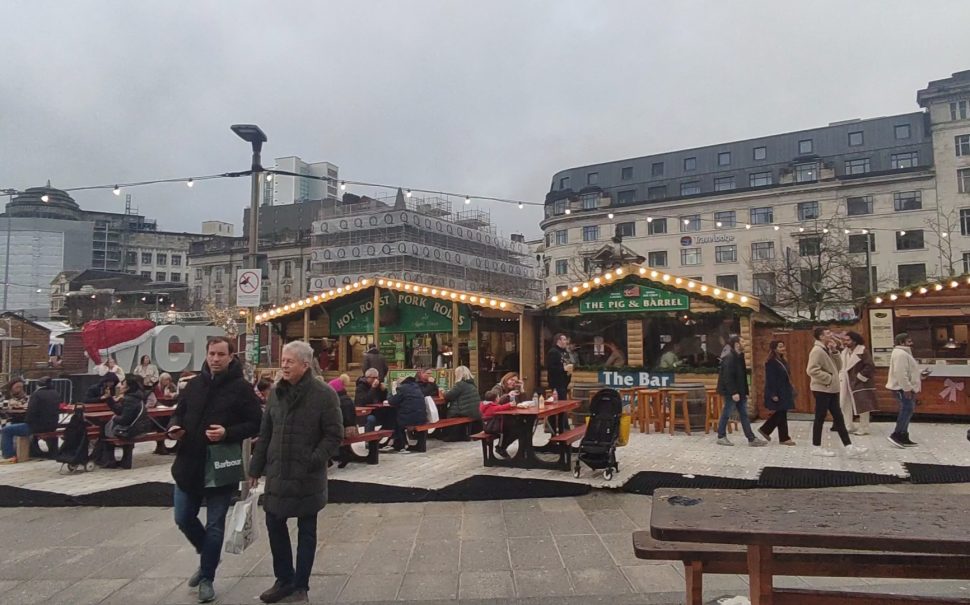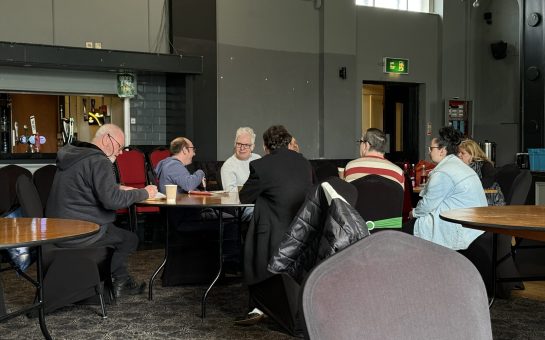Thousands of households every year, across Greater Manchester, may celebrate Christmas differently than you as they carry on their own nation’s traditions in their new homes.
Christmas Day is fast approaching and families are already planning their activities for the day, and the holidays in general. In most people’s minds, this season is spent around family, celebrating Christmas by decorating trees and exchanging gifts. Some people choose to go to church, while others choose to party and take advantage of work and school holidays. However, there are a lot of people in Manchester who may celebrate a little differently than your typical Mancunian family. Families that have emigrated from all around the world that may have grown to different Christmas traditions, may celebrate the holiday a little bit differently in the place that they now call home.
Manchester is a melting pot of cultures. People from the Far East to India and from South America to the Middle East call Greater Manchester their home, and the majority of them portray their cultures with pride, thousands of miles away from their place of origin. Christmas is a day that, nowadays, is almost universally celebrated even in countries that are not Christian. In those cultures, the commercial part of Christmas is mostly celebrated, with festive decorations, music and sometimes food.
Japan is one of the most famous occasions, in which a non-Christian country celebrates Christmas with extravagant decorations and pure Western craziness. People party just like the West and have big dinners. However, the one fact that most people know about Japanese Christmas is the fact that this dinner is KFC!!
Thanks to a successful marketing campaign that dates back to the 70s, more than three million households celebrate Christmas with fried chicken. This is just one example of Western capitalism invading other cultures with the dazzling commercial side of Christmas.
China has also been affected, although not as much as Japan. Christmas there is associated with shopping, as it is not a public holiday in contrast to Western countries where everything is closed, and has more of a Valentine’s Day vibe, especially between younger people.
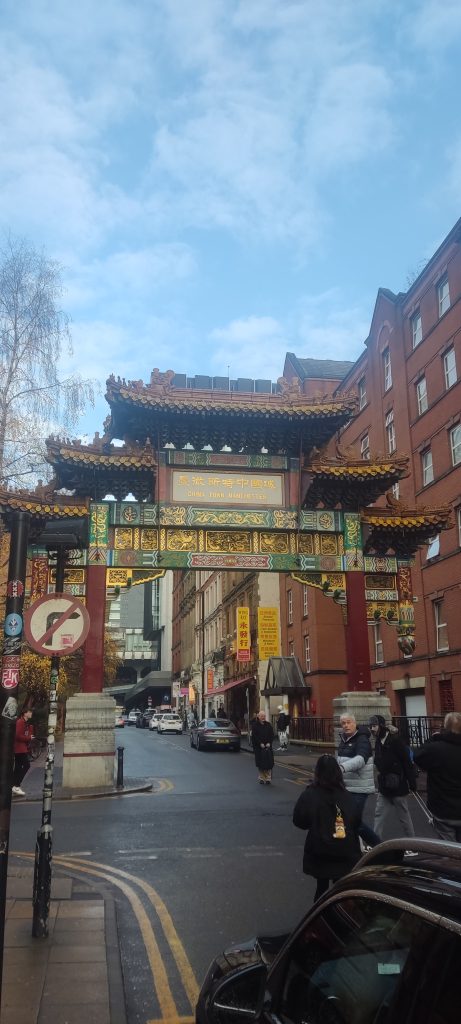
Jie is a third-year student at the University of Manchester and is preparing to spend her third Christmas in Manchester. Originally from Hangzhou, she has now completely immersed herself in the Mancunian festive spirit, as she loves wandering around the Christmas markets to see and experience how different it is compared to back home.
“The first year it was weird because everything is so different from China. In China, it is just another day, compared to here where everything is closed on the day. Back home, we usually had ducks at a restaurant when I was younger but besides that, we didn’t do anything else special. Christmas is more like your Valentine’s Day for us. For us, the Chinese New Year is an important day, with many decorations and fireworks”.
One of the most unique traditions that the Chinese have during Christmas Day is that they decorate and eat apples. This comes from the fact that Christmas Eve in Mandarin is ping an ye, which means “peaceful night”, whereas apple is ping an guo, a homophone for “peace fruit”
“Ah yes, we do eat apples. This is one thing that we keep doing with my friends when we are in England, we always buy apples and write on them before Christmas, like we did in China”.
Even though it is a rather small community compared to others, the Greek Manchester community has strong ties and celebrates together sharing the deep family ties that are engraved into Greek culture.
Nikos moved to Manchester in 2015 and is currently working in the hospitality sector. Now in his thirties, and with eight years of British culture on his back, he still tries to eat and party like he was back home, despite any differences that may be between the two countries.
“My first Christmas here I was a bit lost. I was with my then-girlfriend at the time, and we were nervous about what to do, as we were always used to having big family dinners back home. Eventually, we just cooked a traditional dinner on Christmas Eve and then on Christmas Day we just wandered around the city looking at decorations and trying to find something to eat. It was a good thing we did that on Christmas Day because everything flooded on Boxing Day. Not the best first Boxing Day to have in the UK”.
Nowadays, he has slightly changed his routine, main thanks to his wife Eleni, a nurse, who according to Nikos can cook almost as well as his mom did when he was a kid. FYI “Almost as good” is as close as anyone can get to a Greek mom’s cooking.
“Nowadays, I follow our traditions a bit more closely. My wife is a great cook and always bakes traditional delights as soon as December starts, just like my mom did back home. We now have dinner on Christmas Eve at my wife’s sister’s house but on Christmas Day everyone comes to our house including our friends and celebrates big time. On Boxing Day I have adapted to British culture and I just watch football all day”.
Presents are opened on New Year’s Day, St Basil’s Day, who is thought to be delivering the presents, even though Santa Claus is now commercially used everywhere.
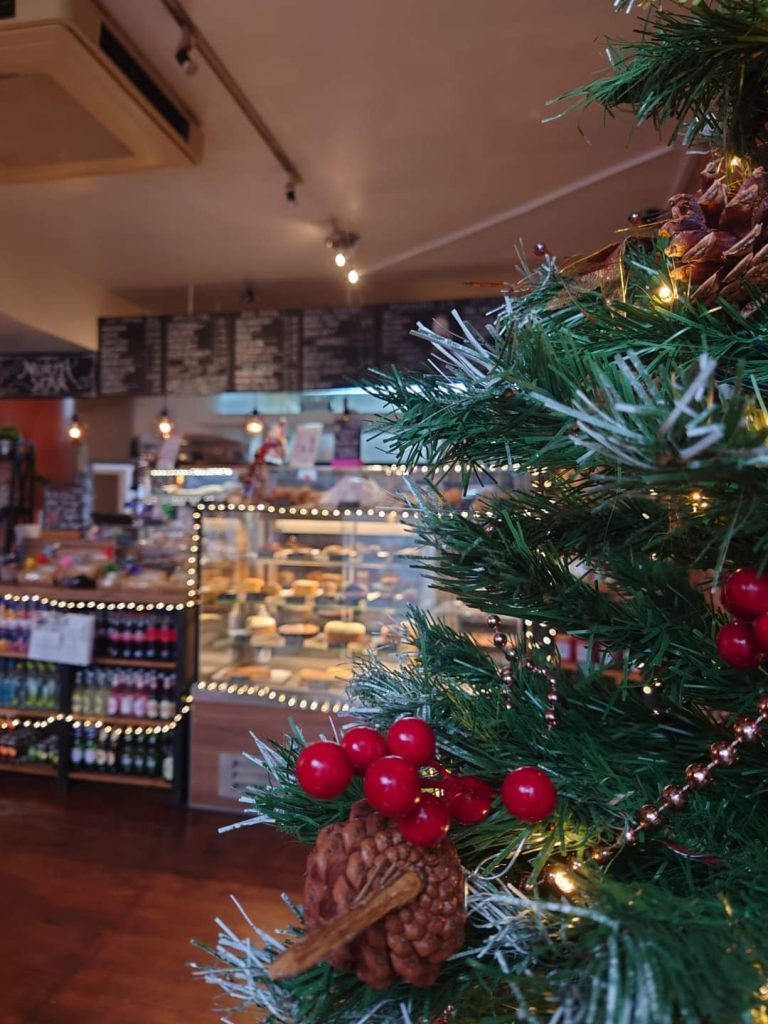
Greece is an Eastern Orthodox country, but compared to most of the other majority-Eastern Orthodox countries that celebrate Christmas on January 7th as they follow the Julian calendar, Greeks celebrate Christmas on December 25th.
In Eastern Orthodox countries, some people observe some kind of lent, abstaining from meat and dairy before Christmas. Greek Christmas dinners usually involve pork dishes and depending on the area turkey or lamb, alongside a variety of traditional Christmas delights.
Another Eastern Orthodox country, with a growing community around Greater Manchester, is Ukraine. Hundreds of Ukrainians have been displaced due to the recent conflict, some found their second home in the North of England, and for the majority, it is important to keep traditions during periods like Christmas, to cure any homesickness and cherish memories from their homeland.
Andriy was not one of the people who had to flee Ukraine in the past years due to the war, as he moved to Salford back in 2014 to work in construction when he was 23. Fast forward to 2023 and Andriy is married to Rebecca and has a five-year-old daughter named Anna. The birth of his daughter, alongside the arrival of some relatives from Ukraine, made him reconnect with Ukrainian Christmas traditions that he had distanced himself from in the past years living in the UK.
“I have been here for almost ten years now, so my traditions have changed a little bit and I have stopped doing many of the traditional celebrations and foods we did back when I was younger in Ukraine. However, now that many Ukrainians have come due to the war, including some family members of mine, we have started doing traditional things once again. I am very happy about that because now that my daughter has started to understand more and more things, it is great to be connected to our roots”.
Ukrainian Christmas traditions can vastly differ from one family to the other, but generally, gifts are delivered on December 6th, on Saint Nicholas Day, twenty days before the UK tradition, as it is believed this is when the Saint leaves the gifts under the tree for the good kids.
“I think the biggest difference, especially for kids, compared to the UK is that we open our gifts on Saint Nicholas Day(December 6th), rather than on Boxing Day. My wife is British, so when my daughter was born, we established that we would exchange gifts on December 26th. Now, she has gifts on both days, from both sides of the family and she is very happy about that”.
Ukraine was one of the countries celebrating Christmas on January 7th, however, that started to phase out slowly in recent years with Christmas being celebrated on December 25th as well as in January, but from 2023 it was decided that Christmas were going to be December 25th, in an attempt to also distance themselves from the Russian tradition of following the Julian calendar.
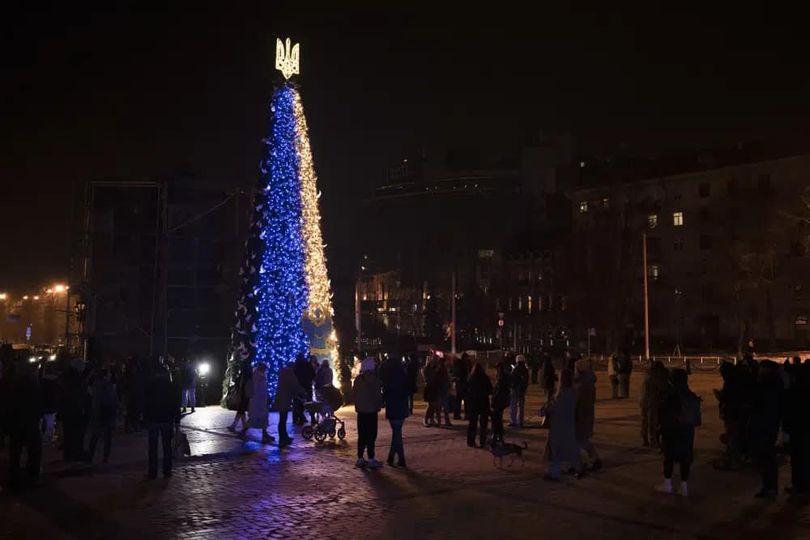
“Once I left Ukraine, I pretty much associated Christmas with December 25th. I went back to Ukraine in 2018, and at first, I kind of forgot that our Christmas was on January 7th. It is good though now that many Ukrainians are in the UK, that it changed to December 25th, it is easier for me as well to remember when to say the greetings,
“I know some people who still celebrate with the old calendar, mostly older people as it is not easy to change after so many years. It is not bad, because we know that some people keep living like the old days when things were different”.
Compared to Greece, Ukrainians follow the religious part of the holiday a bit more closely, attending the church regularly during the Christmas season, and almost always starting their Christmas Day, with an early wake-up call to attend the church mass. There are Greeks, following along on the same program, but in modern days people attending church services has dramatically decreased compared to the past, as they have adopted a more Western style of celebrating Christmas.
“Once I moved here, I stopped attending church on Christmas Day. My mom always dressed us to go when we were young, but again since people moved due to the war we changed some things including going to church. My aunt, my mom’s sister, persuaded me last year to go to church again, and to be honest it feels nice, like the old days. Unfortunately, my mom passed away due to COVID three years ago, but I know she would be happy that I am doing that again with my family”.
For the everyday Mancunian, Christmas might mean roast dinner with family and strolling around the Christmas markets admiring the decorations and eating at the stalls. However, Manchester is called home by people from all over the world who are used to celebrating another way.
It is crucial for all of us away from home, to stay connected with our traditions and Christmas is one of the most important times of the year you get to feel like home again. Do that, make sure you have a fun time and that homesickness will on a long holiday.
